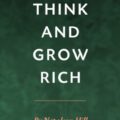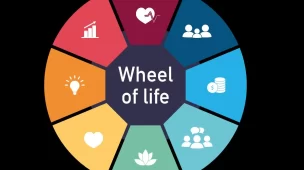“It is not because things are difficult that we do not dare. It is because we do not dare that they are difficult.”
Marcus Aurelius
These profound words from Marcus Aurelius, a Roman emperor known for his stoic wisdom, reflect the essence of a morning routine designed for success, efficiency, and overcoming challenges.
These nine morning routines will help you cultivate a stoic attitude and a moral life in line with your beliefs.
1– Early Rising:
Wake up early, before the sun, if possible. An early start to the day creates a sense of calm and purpose, allowing you to live your day by choice rather than by chance.
2- Morning Contemplation:
Begin your day with a few moments of quiet reflection. Consider the day ahead, and the potential challenges, and embrace the stoic belief that you have the power to control your responses to whatever comes your way.
3- Journaling and Goal Setting:
Write down your thoughts, intentions, and goals for the day. Alongside, visualise achieving these goals and facing challenges with grace and stoicism. Setting clear, achievable objectives keeps you aligned with your long-term aspirations.
4- Visualisation and goal setting:
This goes hand in hand with journaling. Visualise yourself achieving your goals and facing challenges with grace and wisdom. Set clear achievable objectives for the day, keeping in mind your long term aspirations.
5- Practicing gratitude:
Take a moment to acknowledge and appreciate the blessings in your life. Reflect on the people, circumstances, and opportunities that contribute to your well-being, fostering a mindset of contentment and gratitude.
6- Physical Exercise:
Engage in physical activity to invigorate your body and mind.
Whether it’s weight lifting, a brisk walk, run, or yoga, choose an exercise routine that suits you and aligns with the stoic value of physical and mental strength.
7- Nutrition and Hydration:
Nourish your body with a balanced breakfast and stay hydrated throughout the morning.
Good nutrition and hydration are crucial for maintaining mental clarity and energy levels.
8- Prioritize Tasks:
Identify and focus on the most important tasks for the day. Allocate your time and energy to what truly matters, a practical application of stoic efficiency and purposefulness.
8-Embrace Challenges with Stoic Principles:
As you encounter daily challenges, remind yourself of key stoic principles: acceptance of what you cannot control, focusing on your response to events, enduring difficulties with fortitude, and ensuring your actions align with your virtues.
What is Stoicism?
Stoicism is a school of Hellenistic philosophy founded in Athens by Zeno of Citium in the early 3rd century BC. It teaches the development of self-control and fortitude as a means to overcome destructive emotions. The philosophy asserts that virtue (such as wisdom) is happiness and judgment should be based on behavior, rather than words.
Who were the main Stoic philosophers?
The most notable Stoic philosophers include Zeno of Citium (the founder), Seneca the Younger, Epictetus, and Marcus Aurelius. Each contributed significantly to the development and spread of Stoic philosophy.
What are the key principles of Stoicism?
Key principles include understanding what is in our control and what is not, focusing on rational thinking, practicing discipline, valuing personal virtue and integrity, and maintaining emotional resilience.
How does Stoicism differ from other philosophies?
Stoicism is distinct in its emphasis on practical ethics, resilience in the face of hardship, and the belief that the best indication of an individual’s philosophy is not what a person says but how they behave.
Can Stoicism be applied in modern life?
Yes, many people find Stoicism relevant today. Its focus on personal ethics, emotional control, and resilience is considered practical for dealing with modern stressors and challenges.
How do Stoics view emotions?
Stoicism does not advocate for the suppression of emotions but rather suggests that we should not be controlled by them. It emphasizes understanding the reasons behind our emotions and responding to them rationally.
What is a Stoic lifestyle?
A Stoic lifestyle involves practicing simplicity, focusing on self-improvement, developing resilience against misfortune, and prioritizing rational thinking over emotional reactions.
How has Stoicism influenced modern thinking?
Stoicism has influenced various aspects of modern life, including psychology (especially cognitive-behavioral therapy), leadership, and personal development methodologies.
Are there any modern Stoic communities or groups?
Yes, there are many online communities, local groups, and organizations dedicated to the study and practice of Stoic philosophy.
Where can I learn more about Stoicism?
There are numerous resources available, including classic texts by Seneca, Epictetus, and Marcus Aurelius, as well as modern books, online courses, and community forums dedicated to Stoicism.









